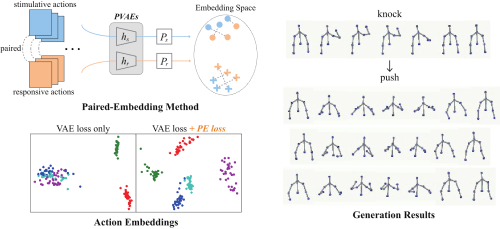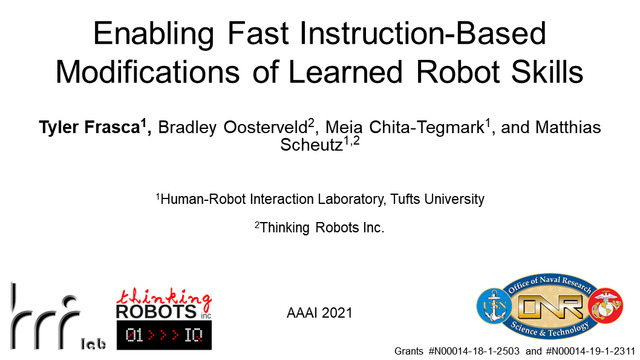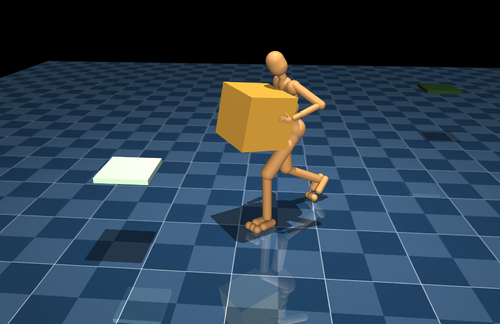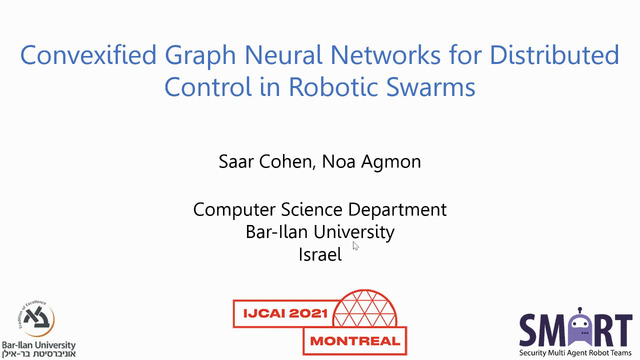Abstract:
Robots assisting us in factories or homes must learn to make use of objects as tools to perform tasks, e.g., a tray for carrying objects. We consider the problem of learning commonsense knowledge of when a tool may be useful and how its use may be composed with other tools to accomplish a high-level task instructed by a human. We introduce TANGO, a novel neural model for predicting task-specific tool interactions. TANGO is trained using demonstrations obtained from human teachers instructing a virtual robot in a physics simulator. TANGO encodes the world state consisting of objects and symbolic relationships between them using a graph neural network. The model learns to attend over the scene using knowledge of the goal and the action history, finally decoding the symbolic action to execute. Crucially, we address generalization to unseen environments where some known tools are missing, but alternative unseen tools are present. We show that by augmenting the representation of the environment with pre-trained embeddings derived from a knowledge-base, the model can generalize effectively to novel environments. Experimental results show a 60.5-78.9% improvement over the baseline in predicting successful symbolic plans in unseen settings for a simulated mobile manipulator.









































